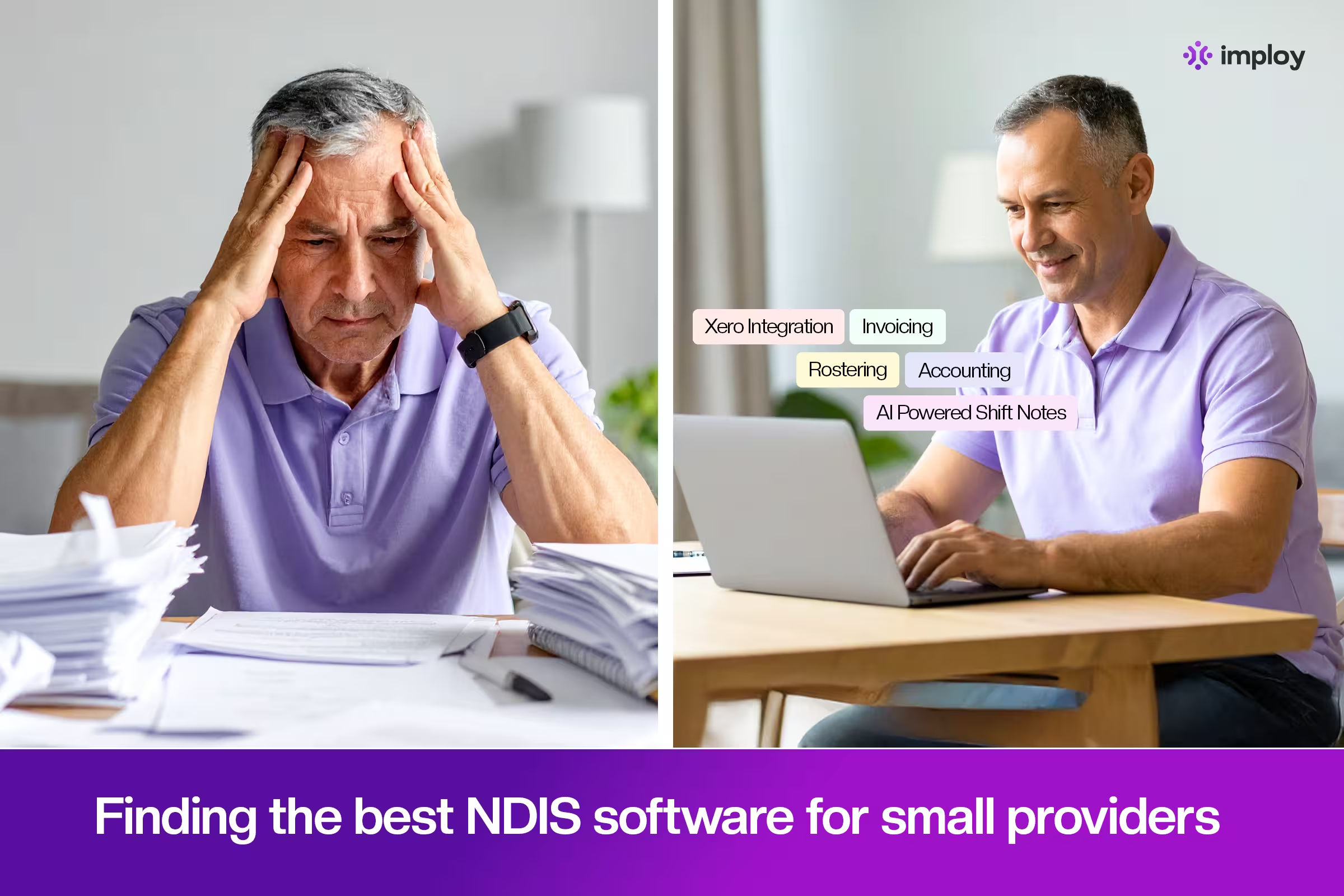SCHADS Award Classification 2026: Pay Rates, Levels & PDF
Discover the 2026 SCHADS Award classifications, pay rates, updated PDF resources, and how to correctly classify workers under SCHADS.

The Social, Community, Home Care & Disability Services (SCHADS) Award is central to the rights, pay, and conditions for thousands of workers in Australia’s community services sectors, including disability, home care, aged care, family day care, and crisis accommodation. Getting the classification right under SCHADS isn’t just about fair pay, it’s about legal compliance, staff morale, funding, and reputation.
In this guide, you'll get up-to-date info for 2026: classifications (Levels 1-8), key roles by level, pay rates, recent changes, and where to get authoritative PDFs and tools.
What is the SCHADS Award?
The SCHADS Award, managed by the Fair Work Commission (FWC) and enforced by the Fair Work Ombudsman (FWO), applies to a broad range of employees across the social and community services, disability support, home care, and crisis assistance sectors.
Key points to know:
- It applies nationwide across Australia.
- It is updated annually, usually with wage increases effective from 1 July.
- It includes streams and levels that determine how employees are classified and paid.
- In 2024-2026, the FWC has been reviewing the classification system, with provisional decisions to create a more unified structure, especially for care workers with Certificate III qualifications.
Streams Under the SCHADS Award
The SCHADS Award is divided into several streams, and these help determine where a role should be classified. Each stream reflects the type of work being performed and carries its own classification levels and pay scales.
- The Social and Community Services (SACS) stream applies to employees who work in welfare services, community advocacy, or programs designed to support vulnerable groups.
- The Home Care stream covers employees who assist clients in their homes with personal care, support services, and daily living activities.
- The Disability Services and Personal Support stream applies to workers who provide care and support to people with disability, whether in community settings, residential facilities, or private homes.
- The Crisis Assistance and Supported Housing stream is for employees who provide emergency housing, family day care, or crisis support services to individuals and families in need.
Getting the correct stream classification is crucial, as it determines the employee’s pay rates, entitlements, and progression pathways under the SCHADS Award.
SCHADS Award Classifications Levels 1-8
Here’s a breakdown of what you’ll see in SCHADS levels across streams.
Note: different streams may have slightly different criteria or level structure. Always check the relevant SCHADS schedule.
For example, the classification definitions under various schedules (SACS, Home Care, Crisis Accommodation) set out specific duties, levels of supervision, and required qualifications for each level.
SCHADS Award Pay Rates 2026 (Effective 1 October 2026)
Applies to full-time and part-time employees. Casual employees receive an additional 25% loading on the base hourly rate. For detailed guidance on how broken shift allowances apply under the SCHADS Award, refer to our Broken Shift Allowance under the SCHADS Award guide.
SCHADS Level 3 Salary Example:
A full-time Level 3 worker (38 hours per week at $28.03/hour) earns about $1,065 per week before tax, or roughly $55,400 annually. Casuals earn more per hour due to the 25% loading.
Why Correct Classification Matters
- Legal / Compliance Risk: Misclassifying employees (wrong level, wrong pay point, failing to pay correct allowances, etc.) can lead to underpayment claims, legal penalties, audits by Fair Work, and union action.
- Financial / Operational Consequences: For providers (especially NDIS providers), budget forecasting depends on accurate wage cost projections; miscalculations can lead to under-funding or financial losses.
- Staff Morale & Retention: Employees who believe they are not being paid fairly (or do not understand how their classification or pay point works) are more likely to leave, decreasing retention and raising recruitment/training costs.
- Reputation & Funding / Contracting Risks: Misclassifications can harm reputation, may breach funding contracts or grant agreements, especially where schemes like NDIS require compliance with correct award pay.
Recent Updates & Changes
- Annual Wage Review 2025: SCHADS Award pay rates increased by 3.5% from 1 July 2025.
- Gender Undervaluation Review: Fair Work is reviewing SCHADS classifications to address undervaluation of care work, which could lead to further pay increases and restructured levels.
- Aged Care & Home Care Reclassifications: Some roles are being reclassified under new structures, especially in aged care, to reflect skills and responsibilities more accurately.
SCHADS Award PDFs & Resources
Here are authoritative resources and PDFs you should refer to:
- Fair Work Ombudsman Pay Guide - includes full tables, classifications, allowances, etc.
- SCHADS Award Award Viewer (via Fair Work Commission or Fair Work Ombudsman) - to see current, binding award clauses.
- Recent FWC Decisions / Reviews - such as the Review and Expert Panel’s provisional decision [2025] FWCFB 74 regarding gender undervaluation and proposed classification restructuring.
Conclusion
If you’re covered by the SCHADS Award, whether as an NDIS provider, HR manager, or care worker, understanding the classifications (Levels 1-8), pay points, and updated 2026 rates is non-negotiable. It ensures fairness, compliance, and helps your organization budget correctly and retain staff.
If you're unsure about your classification, suspect you’re underpaid, or simply want to streamline compliance, Imploy can help. Our tools support correct classification, pay-rate tracking, audit readiness, and ensure you always use the latest SCHADS Award PDFs and rates. Contact us to find out how Imploy can simplify compliance and protect your workforce.
FAQs
Q: How do I know if I’ve been misclassified?
A: Compare your duties to the SCHADS Award PDF classification tables and seek advice from Fair Work if unsure.
Q: What is the Level 4 classification for the SCHADS Award?
A: Level 4 under SCHADS typically refers to roles that require specialised knowledge or qualifications, more autonomy, and sometimes supervisory duties. As of 2026, Level 4.1 in disability/social services is about $44.58/hr for full-time/part-time, with higher rates for casuals.
Q: What is Level 5 SCHADS?
A: Level 5 is a higher specialist or leadership level under SCHADS. These roles involve significant experience or specialisation (e.g., behaviour support, strategic coordination). The pay is higher than Level 4, depending on stream and pay point. For exact rates, refer to the pay tables in the Fair Work SCHADS Pay Guide.
Q: What is SCHADS Level 3 pay?
A: Level 3 pay varies by pay point. Examples in 2025: Level 3.1 ~$38.65/hr; Level 3.2 ~$39.77/hr; Level 3.4 ~$41.45/hr for full-time/part-time roles in the Social & Community Services stream. Casual loading adds ~25%.
Q: What are the different classifications of workers under the SCHADS Award?
A: Workers are classified by stream (Social & Community, Home Care, Crisis Accommodation, Family Day Care), by level (1-8), by pay point within each level, by employment type (full-time, part-time, casual), and by qualification, experience, duties/responsibilities. Special duties or higher duties may lead to working at a higher classification temporarily.
Q: How do I know if I’ve been misclassified?
A: Compare your duties to the SCHADS Award PDF classification tables and seek advice from Fair Work if unsure.





